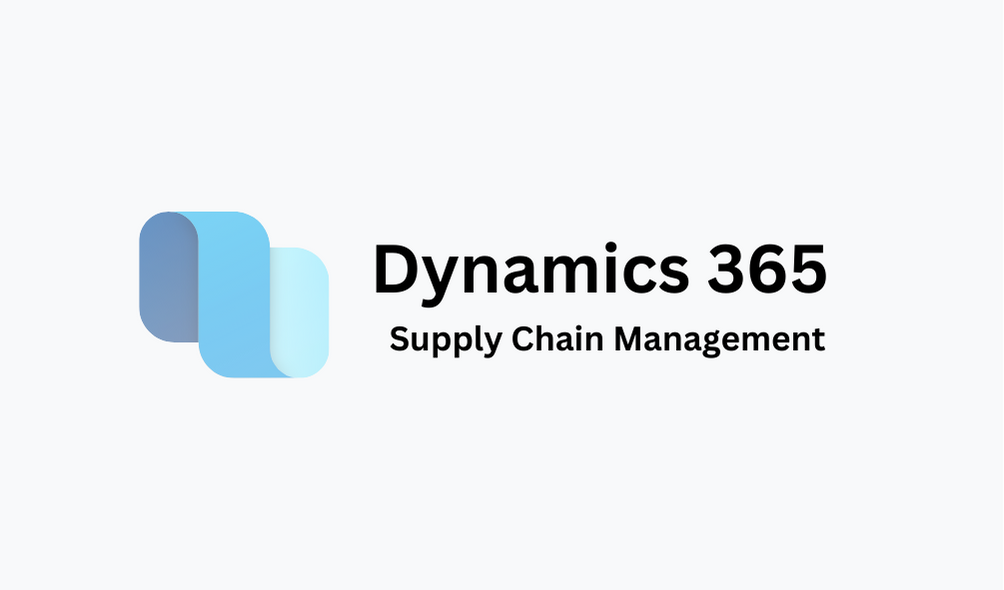
What is the Right Approach for Dynamics 365 Supply Chain Management Implementation?
Have you invested in Dynamics 365 Supply Chain Management ERP solution but worried about its successful implementation? Do you want to make the most out of these valuable resources & investments?
If that’s the case, investing your precious time in reading this blog is certainly worth your time. Here, we are talking about the right approach or methodology for successful Dynamics 365 supply chain management implementation. We discuss its implementation cost as well. Henceforth, stay tuned to this blog!
What do you mean by successful Dynamics 365 supply chain management implementation?
Look, every company is providing Dynamics 365 supply chain management implementation services; however, only a few of them are implementing it in the right manner to achieve the targeted rate of return.
If your business is not making the most out of your investment in Dynamics 365 Supply Chain Management, then you end up selecting the wrong implementation partner.
In simple terms, a successful Dynamics 365 Supply Chain Management implementation is one that seamlessly enhances operational efficiency, streamlines processes, ensures supply chain resilience and meets business objectives while maintaining or reducing cost.
Right Methodology for Successful Dynamics 365 Supply Chain Management Implementation
Real & Strategic Planning
Real planning means understanding the actual operational needs and challenges within your supply chain. When you gain this knowledge, you know all the ins & and outs required for customizations to resolve real-world issues.
Strategic planning aligns the implementation way by identifying the objectives, ensuring that it not only solves immediate problems but also advances long-term goals. Together, these elements create a robust framework that drives efficiency, resilience, and competitiveness, fostering a successful implementation.
Rigorous Assessment of Current Systems & Tools
Did you know that Dynamics 365 supply chain management implementation sometimes fails in response to outdated systems, partially integrated applications, and old programming languages? Implementing an ERP system involves data migration, and system upgrades, which is quite a challenging task.
You first need to list all your current systems, databases, and applications including integrated ones. To avoid delays and failures, assess your existing infrastructure thoroughly, understand how it works, and set key project milestones.
Understand All D365 Supply Chain Capabilities
Before adding extra functionalities to the Dynamics 365 supply chain system, it’s smart to review what’s already there. Microsoft keeps updating new functionalities in their solutions on a regular basis, which means that there might be some features that perfectly match your industry requirements.
In this way, you might need to make small changes to what’s already there, rather than creating new stuff from scratch.
Develop Cross-Functional Team
Succeeding with Microsoft Dynamics 365 isn’t only up to the people who install it. It needs a group of experts from different parts of the company who are good at spotting problems and suggesting improvements.
These experts can get help from vendors, employees, and managers, while the IT team takes care of the technical part. That’s called developing cross cross-functional team. The IT specialists handle the technical aspects while the cross-functional team focuses on improving processes and making recommendations.
Skilled Leader to Lead the Project Effectively
A Dynamics 365 implementation needs a skilled leader who can bring together the right people and skills to reach the project’s goals. This leader should be excellent at time management, communication, and problem-solving.
While operations managers are good at budgeting and overseeing tasks, they might not know much about Dynamics 365. On the other hand, IT managers who know Dynamics 365 well might lack business process knowledge. The solution is to have multiple leaders from different areas working together to manage the project.
Learn more: Ways to Streamline Supply Chain Management using Dynamics 365 ERP
How to choose the best Dynamics 365 supply chain management implementation partner?
Choosing the best Dynamics 365 Supply Chain Management implementation partner is a crucial decision. Here are steps to help you make the right choice:
- Define Your Needs: Start by identifying your specific needs, objectives, and budget for the implementation. What are your pain points, and what do you want to achieve with the system?
- Research Potential Partners: Look for partners with experience in implementing Dynamics 365 for supply chain management. Check their reputation, client testimonials, and case studies.
- Expertise: Ensure the partner has a team of certified Dynamics 365 professionals with expertise in supply chain management.
- Compatibility: Evaluate if the partner’s approach aligns with your company’s culture and values. Communication and understanding are essential for a successful partnership.
- Customization: Determine if the partner can tailor Dynamics 365 to your specific needs. Off-the-shelf solutions may not meet all your requirements.
- Project Experience: Ask about their past projects, particularly those like your industry or requirements. This demonstrates their capability.
- Support and Maintenance: Inquire about post-implementation support and maintenance services. A partner should offer ongoing assistance and updates.
- Cost Transparency: Ensure the partner provides a clear and transparent cost structure, including licensing fees and service charges.
- Demo and Proof of Concept: Request a demo and, if feasible, proof of concept to see how the partner works and how well they understand your needs.
- Feedback: Listen to your gut feeling. Choose a partner you feel comfortable working with and who demonstrates a genuine interest in your project’s success.
Conclusion
Selecting the right approach for Dynamics 365 Supply Chain Management implementation is pivotal for success. It begins with understanding your unique business needs, industry requirements, and the specific challenges you aim to address. A detailed needs assessment and planning phase are essential.
Moreover, involving cross-functional teams and experienced partners can ensure a comprehensive approach. This blog delves into the crucial factors and strategies to guide you in choosing the correct path for your Dynamics 365 Supply Chain Management implementation, ensuring efficient operations and sustainable growth.
Read More: Business Central for Supply Chain Management


